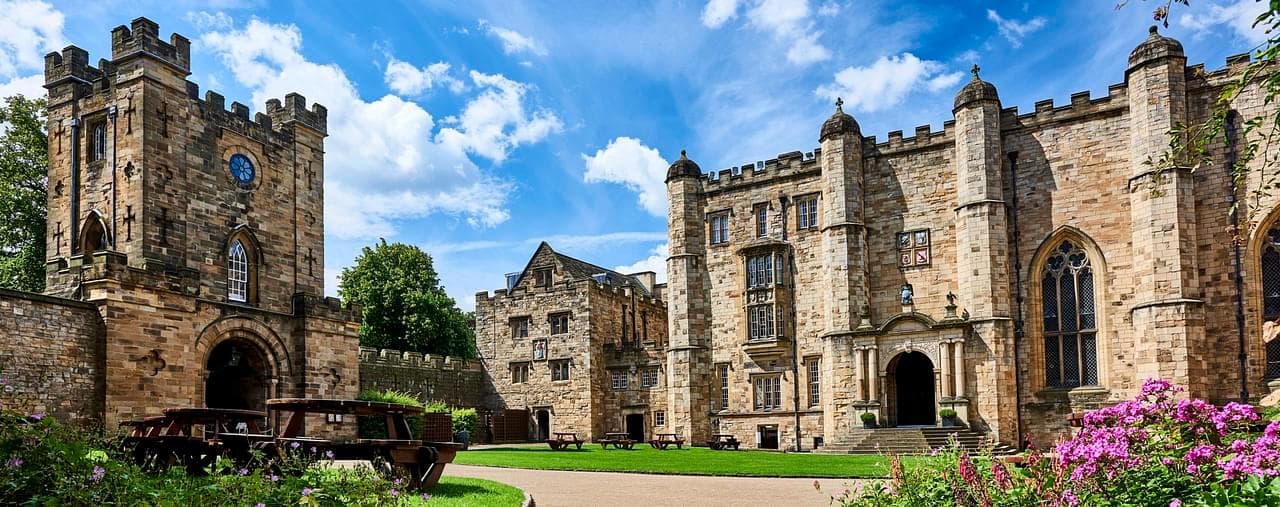Program structure
Year 1
In the first year, you will take three modules in English Literature and three modules in History.
Examples of optional modules in English:
-
Introduction to Drama
-
Introduction to the Novel
-
Introduction to Poetry
-
Romance and the Literature of Chivalry
-
Epic and Literature of Legend
-
Classical and Biblical Backgrounds to English Literature.
Examples of optional modules in History:
-
Beyond the Northlands: The Vikings and their World
-
Decline and Crisis: Europe 1300-1500
-
Early Modern England: A Social History
-
Society and Culture in China under Ming and Qing Dynasties
-
Reformation Europe
-
The Century of Revolution
-
Making History
-
The Birth of Western Society, 300-1050 AD.
Year 2
In English, you have a wide choice from among lecture and seminar modules, but must take either Theory and Practice of Literary Criticism or Shakespeare. In History, you are offered modules that provide time-depth and focus on a closely defined period, and modules that are broader and more wide ranging, typically offering a widely delimited chronological and geographical approach.
Compulsory modules in English:
EITHER / OR
(although both may be selected).
Examples of optional lecture modules in English (taught by weekly lectures and four one-hour tutorials):
Examples of optional seminar modules in English (taught by fortnightly two-hour seminars):
-
Jane Austen
-
Arthurian Literature
-
Germanic Myth and Legend
-
Toni Morrison: Texts and Contexts
-
The Brontës
-
Evelyn Waugh
-
Shakespeare’s History Plays
-
Romantic Plays and Players (a maximum of one may be selected).
Examples of optional modules in History:
-
Conversations with History
-
Hard Times: British Society, 1818-1902
-
Robin Hood
-
The Book of Hours in Medieval Life and Art
-
The Court: Art and Power in Early Modern Europe
-
Selling the Tudor Monarchy
-
Political Culture in Japan since 1688
-
Soviet Socialism in the Cold War: The USSR, 1945-1991
-
From Vikings to Crusaders: The Formation of the Scandinavian Kingdoms, 900-1200
-
Colonial British America, 1600-1776.
Year 3
In English, the combination of a range of optional lecture modules and Special Topics is designed to broaden and deepen your knowledge base and analytical skills. In History, the syllabus encourages the detailed study and analysis of historical events, trends and problems by means of a Special Subject (requiring close study of a highly specialised topic using primary source materials) and a Dissertation. The third year also includes the possibility of choosing ‘reflective’ modules which oblige students to study a particular historical problem that will lead them to reflect upon the problematical nature of the historical enterprise, on its technique, historiography and subjectivity.
Compulsory modules:
One from:
Examples of optional lecture modules in English (taught by weekly lectures and four one-hour tutorials):
-
Old English
-
Old Norse
-
Old French
-
Restoration and 18th Century Literature
-
Literature of the Romantic Period
-
Post-War Fiction and Poetry
-
American Fiction
-
Medieval Literature.
Examples of optional special topics in English (taught by fortnightly two-hour seminars):
-
Literature, Cinema and Neuroscience
-
Shakespeare on Film
-
Resistance in South Asian Postcolonial Literature
-
Writing Prose Fiction
-
Reading Joyce’s Ulysses
-
W.B. Yeats
-
Keats and Shelley
-
Elizabeth Bishop and Twentieth Century Verse
-
Nonsense Literature
-
Creative Writing Poetry
-
Writing Mountains in the Early Twentieth Century
-
Seamus Heaney
-
Jewish American Fiction
-
Science and the Literary Imagination
-
Mind and Narrative.
Examples of optional modules in History:
-
A World Turned Upside Down: Radicalism in the English Revolution
-
From War to Cold War: US Foreign Policy, c. 1944-1948
-
Politics and Polemics: Medieval German Kings and their Chroniclers, c. 1024-1125
-
Revolution and History
-
The Ruin of the World: Roman to Barbarian Gaul, 400-500
-
Medieval Iceland: Settlement, Sagas, Civil War
-
Popular Cultures in Early Modern England 1500-1640.
